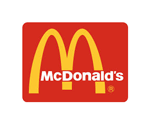 |
||||||||
| April 30, 2014 | ||||||||
| PressFox roll covers produce good results at Stora Enso mill |  |
|||||||
| · www.tappi.org · Subscribe to Ahead of the Curve · Newsletters · Ahead of the Curve archived issues · Contact the Editor |
Ronald McDonald wears a new-and-improved sustainability hat Bruce Horovitz McDonald's has announced new goals for sustainability and social responsibility by 2020—including sustainable beef production—but at least one environmental group found the goals too modest and not transparent enough. "While it appears to be a positive move, McDonald's whole business model is based on disposable matter and cheap food that's cheaply produced," says Lisa Archer, director of the food technology program at Friends of the Earth, a national environmental group. "Their whole business model is based on an unsustainable system. So they have a long way to go." McDonald's executives says the goals are a big deal. "We are focusing on the areas that are core to our business and that make a real difference," says J. C. Gonzalez-Mendez, senior vice president of McDonald's global corporate social responsibility, sustainability and philanthropy, in a statement. The move comes at a time Millennials are increasingly attracted to companies—particularly food and restaurant companies—that practice sustainable business habits. Buying or using green products, for example, is important to four in 10 Millennials, which is greater than to any other age group, according to a recent survey by Shelton Group, a communications agency focused on sustainability. Perhaps that's why everyone from Coca-Cola to PepsiCo to Chipotle upped their sustainability communications via social media last year, reports the Social Media Sustainability Index. Among McDonald's 2020 goals: "We're on our way to mainstreaming sustainability," says Bob Langert, McDonald's vice president of corporate social responsibility and sustainability. But Archer, of Friends of the Earth, says McDonald's has no choice but to make these changes – and more. "They are losing market share as customers seek more sustainable food," she says. "They are making these changes because they have to."
Now that you
are Ahead of the Curve, stay there by joining TAPPI. |
|||||||
 |
||||||||



